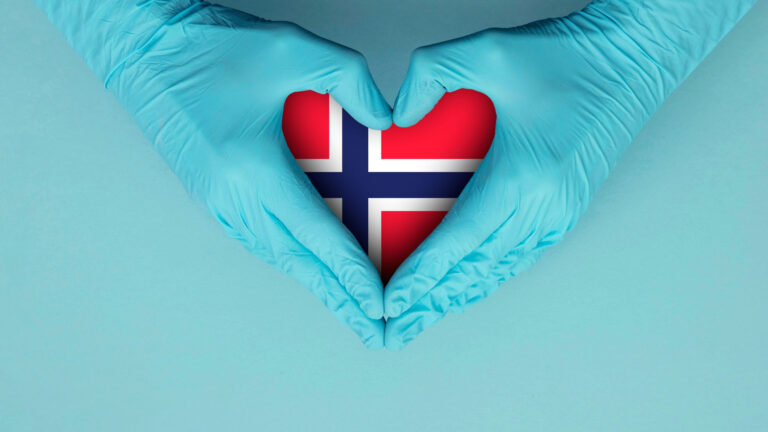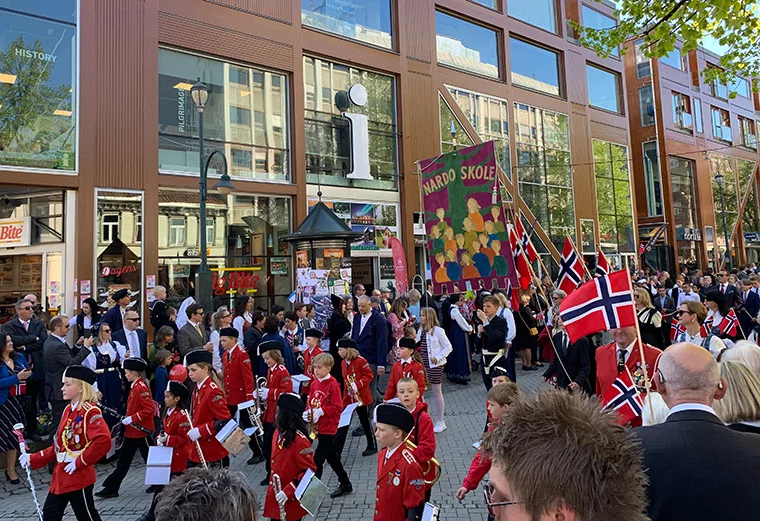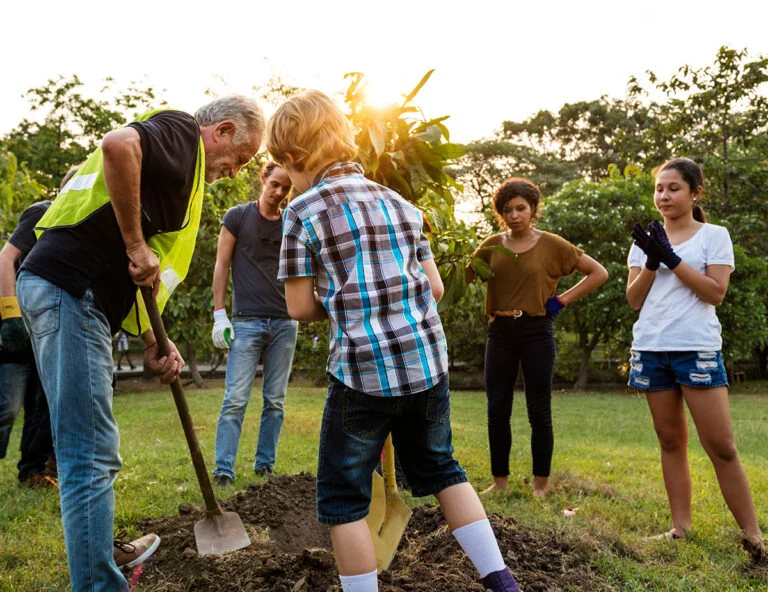Volunteering is a key element in Norwegian society and a popular activity for newcomers to get to know Norway and the Norwegian language. Here's our guide to volunteering in Norway.
There are so many benefits to volunteering, that the only downside is you don’t get paid. In addition to making a difference, you can get useful work experience, learn something new, improve Norwegian skills, and get to know the Norwegian system better.

Everyone says volunteering is key to making friends and integrating into Norwegian society, but how do you actually do it?
There is a great variety of volunteer work out there. Let's take a look at how and where to get started.
Pick something you are passionate about
If you have a life passion or a certain political view, there may be a higher chance you can find like-minded people, and build stronger friendships.
- Environment: all the larger organizations, like WWF, post jobs regularly. This often includes tasks that are not necessarily hands-on, but require more administrative and organisation skills
- Local environment: help cleaning shorelines for plastic and garbage. This is needed all over Norway
- Injustice: work with Amnesty of the Norwegian Refugee Council
Working with children and youth
Working with children may actually be a good way to learn Norwegian. Children are less judgemental, and they will probably find joy in teaching you Norwegian and pick up some English at the same time.

Nowadays, children are usually quite proficient English speakers as early as grade 5.
- Volunteer at a meeting place for troubling youth, and help with practical tasks, entertainment, creative assignments, general support etc
- Help pick up children at school and take them to after-school activities like choir practice
- Help organize outdoor trips for children with refugee backgrounds
Animals
There are always many animals in need of help, even in Norway, where animals are treated better than in many other places. However, animals are also used because they often are beneficial to health and welfare. Animals are also the ultimate ice-breakers if you feel shy or unsure of language skills.
- If you have a dog, or can borrow one, there are senior homes that welcome four-legged visitors
- You can work in an emergency center for cats, or drive cats or dogs to foster homes
- If you have experience with horses, they are sometimes used to help children with disabilities
Educational programs
For those who want to go all in, there are also larger educational programs. An example is WWOOF Norway, which is an organic farming project. The volunteers live on a farm, and help out with various tasks while learning about organic agriculture.
Volunteering is good for your resume
Not convinced volunteering fits into your career plan? Don’t forget: most employers will appreciate and admire the effort to contribute to Norwegian society and that you use your spare time for a greater good.
Where to find volunteer opportunities in Norway
Once you’ve decided upon the kind of volunteer work you’d like to do, there are several places to look.

Contact organizations directly
If you are interested in specific organizations or don’t find any jobs that appeal to you, it may be better to contact the organization directly.
Large non-profits like Red Cross or The Church City Mission (Kirkens Bymisjon), have their own organized systems for volunteering.
Frivillig.no
Frivillig.no (frivillig=volunteer) is a website where organizations all over Norway can advertise volunteer positions. There are hundreds of jobs posted, from large organizations like Red Cross and Greenpeace, to local municipalities and small charities.
Frivillig.no is not involved in the process any more than just posting positions on their website.
You can search for jobs in fields you are more interested in. For example children and youth, local community, culture and festivals, health and social, and environment and animals.
You can also specify your interests or skills, like administration, communication, friendships and visits, practical tasks etc.
If you are interested in a job, there is a very short contact form to fill out. And the non-profit will contact you directly.
Frivilligsentral.no
Frivilligsentral.no (the volunteer central) is a website for all of Norway’s local volunteer centres. The chances are that there are several around where you live, even if you live in a remote place. Most local centres are organised through the local public administration.

If you go to your most local centre directly, you will get a quite specified list over places you can contribute.
The difference is while frivillig.no seems more skill and interest oriented, frivilligsentral.no is more oriented towards the local community.
These two websites are both great places to browse and just get an idea of all the different possibilities that are out there. They are in Norwegian, but Google translate works remarkably well.
Do I need a work permit?
No, it is not necessary to have neither residency nor work permit, but there are restrictions.
If you are intending to stay in Norway and are waiting for your application to be approved, these are The Norwegian Immigration’s (UDI) rules for what is considered volunteer work:
- It must be your own choice to volunteer in that particular job
- You can’t receive a salary
- It has to be a non-profit, humanitarian or religious organization
- You can’t replace paid labour
- You cannot work more than 30 hours per week
A foot in the door?
It is not unusual that other employers than the non-profit, are contacted by people who offer to work for free in order to prove themselves for a particular job. And even if this could be a win-win and legal, this is not very common in Norway.
Visitors to Norway from outside EU/Schengen
As a visitor to Norway from outside EU/Schengen, you can normally stay for 90 days on a tourist visa.
As a tourist you can volunteer for example in the travel industry in exchange for accommodation and food. There are several organizations, like worldpackers, and are usually mostly attractive to the young crowd.
Some organizations may also have certain age restrictions.
Have you successfully found volunteer work in Norway? If so, we'd love to hear your story in the comments.


Thank you for these articles and their links! Volunteer work is spiritually rewarding and I believe you are correct that joining a group of like-minded individuals will go a long way to developing Norwegian friendships.
I also enjoyed your article about home improvements and the links!
Hi I travelled to Norway yesterday to a woofing farm but I was refused entry & sent home as being given food & lodging in exchange for working was seen as Beeding a work premit is this correct?
My 27 year old son was deported last week, having been volunteering as a Wwoofer on a farm in Norway. No money changed hands, food and accommodation only, he was there 6 weeks from the Uk.